In the Fall/Winter 2021 issue of T5F, we challenged our alumni to write something without using any of the letters from the word "COVID." Call it wishful thinking, but we thought that, by this time, the virus in its various 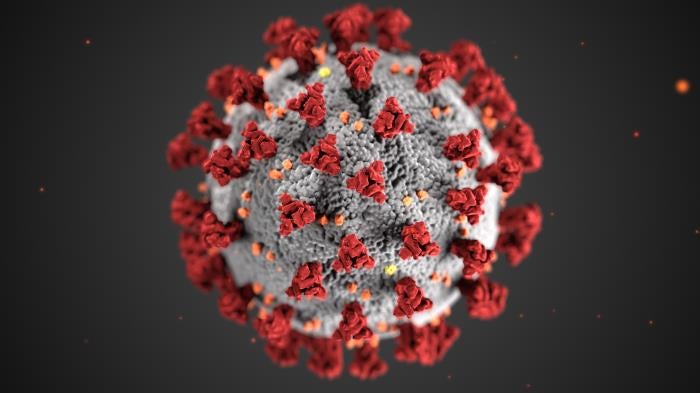 iterations would be a thing of the past. It's not, though with a great number of vaccinated and boosted Americans, we may be on the path to controlling it. Our contest judge, Senior Lecturer Jeff Oaks, is known for giving tricky creative writing exercises to his students, so we thought he'd be a perfect fit. The following are his selections.
iterations would be a thing of the past. It's not, though with a great number of vaccinated and boosted Americans, we may be on the path to controlling it. Our contest judge, Senior Lecturer Jeff Oaks, is known for giving tricky creative writing exercises to his students, so we thought he'd be a perfect fit. The following are his selections.
Judge's First Place Selection: "Twenty Plants" by Lois Williams
Twenty Plants
Yes, there are stars, planets, a galaxy up there
but they’re far away. Let’s stay here:
summer, the park’s new weather,
the apple tree’s new leaf. Let’s say
the names we remember:
Ash, Bay, Elm, Fern.
Maybe we’ll be happy.
Let’s assume a gutter-water sun
has the same rays as sun that gleams the lake.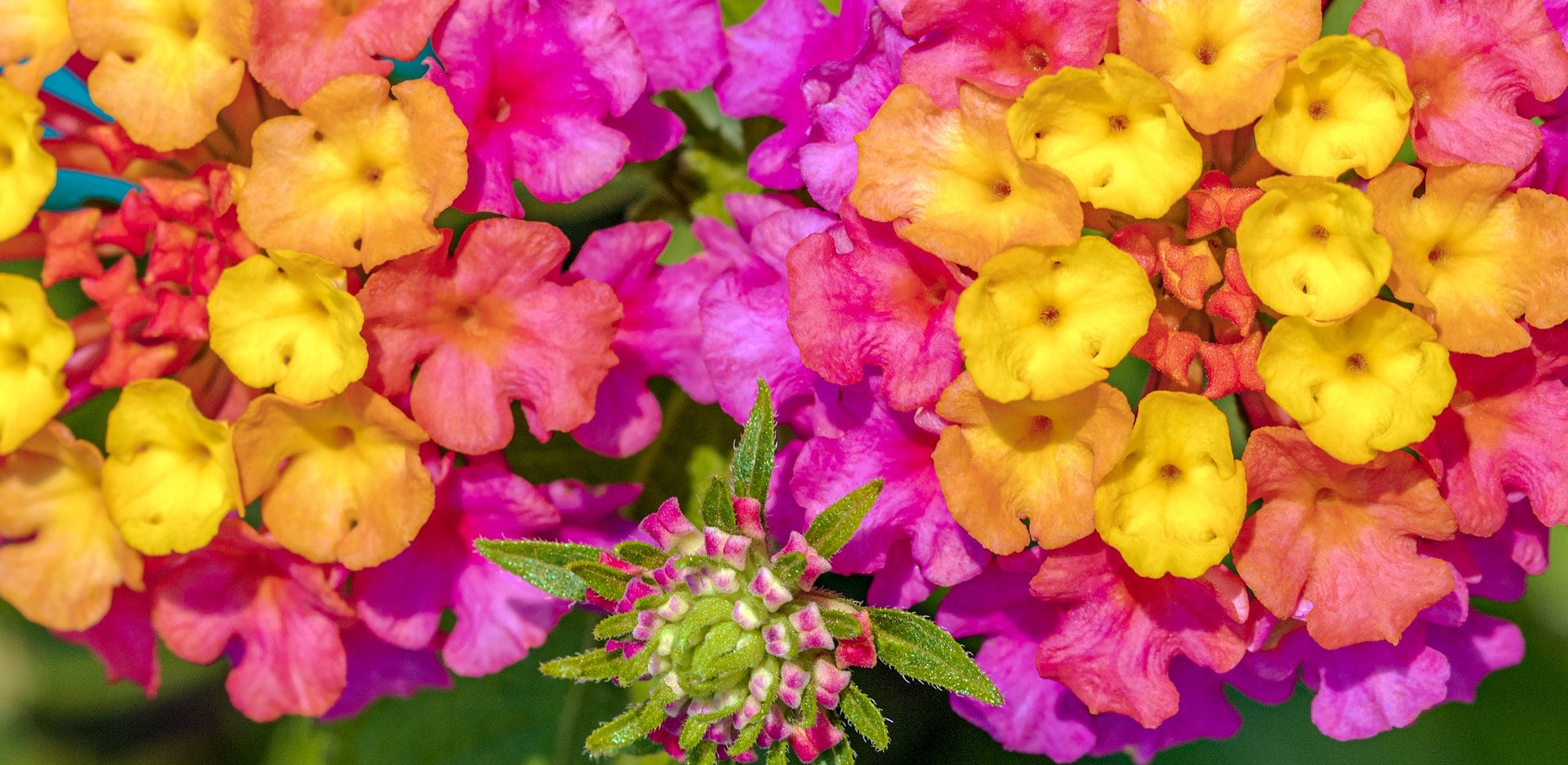
Let’s breathe the warm asphalt smell
when skate wheels tar the grass.
Gerber, Harebell, Japanese Maple.
My father warns me languages
are luxury. What he remembers are
hungry years, February after February.
Let’s say a feather near the walkway
means a nest—maybe a wren’s.
But May, June, January, September
a man at the bus asks “Spare a quarter?”
Kale, Lantana, Myrtle, Nutmeg.
That gym bag beneath the bypass
means he sleeps unsafe.
There are systems that make us
unequal. When we refuse them,
they start wars. That wealth, that ease.
Plenty’s farthest extent.
We say Pansy, Quamash,
Rutabaga, Sassafras
uselessly.
Beneath the earth, patterns renew:
ants sense the warmth, tunnel up.
All summer, they make paths between
new eggs, fragment shells, eternally.
Thyme, Ulex, Wheat, Yew.
Let’s put up a tent. Let’s see—
Zephyranthes—what happens.
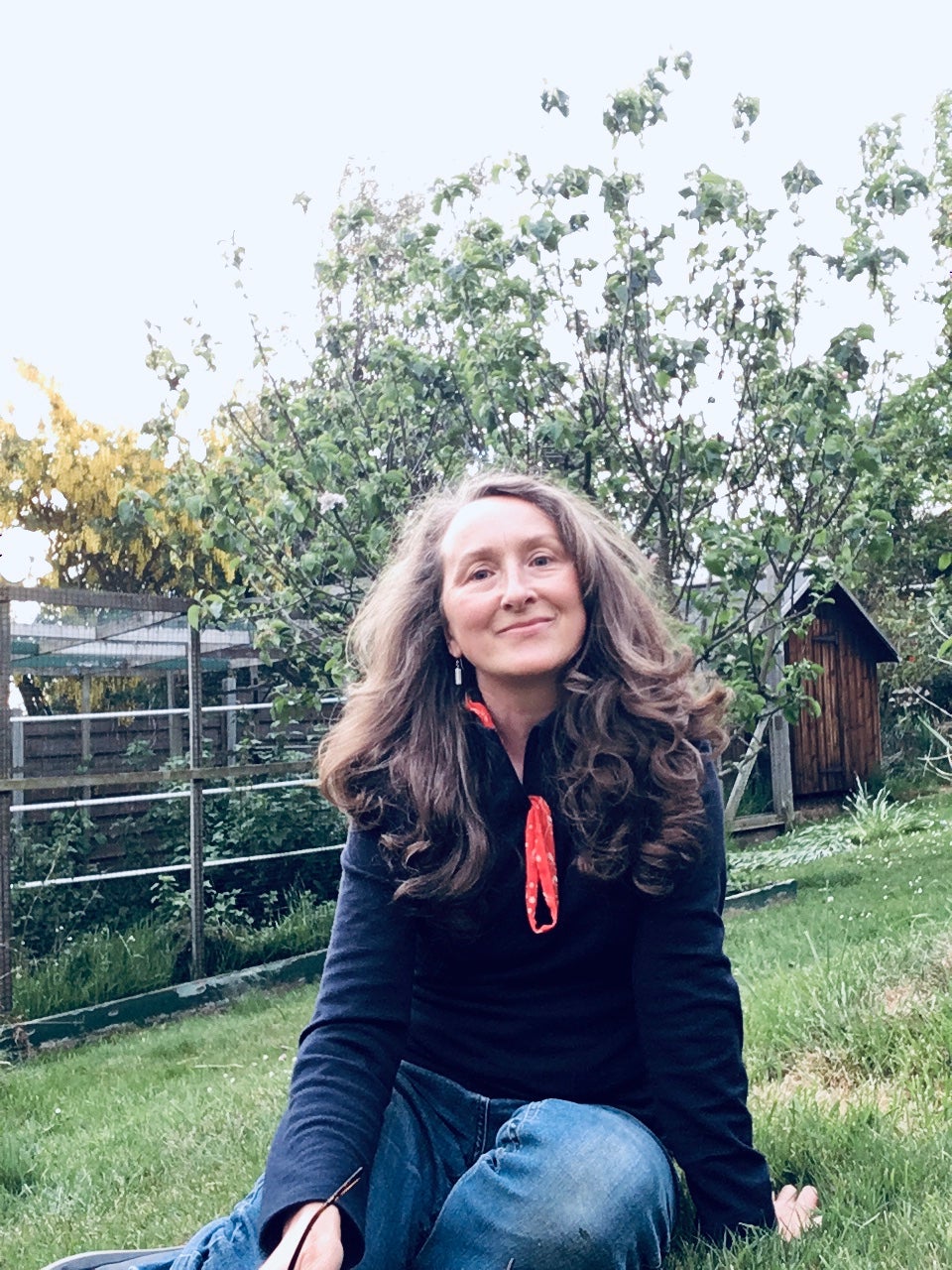 Writer's Comments and Bio:
Writer's Comments and Bio:
To write this poem, I began by listing words that fitted the "no COVID" constraint. Some surprises turned up—assume, system, patterns, breathe—because I couldn’t rely on "I" and the familiar conjunctions and and so on. I drafted the poem over a few months, a bit at a time, all of it rough work and lacking a direction. I wrote many of its lines in the few minutes before going to sleep, at the end of days that are still tinted with a kind of hypervigilance because of COVID-19 and my family’s vulnerability. It has been hard to concentrate on anything beyond the practical since March 2020. Writing the poem was a diversion and a chance to restore to myself some of the thinking I used to do when I was teaching writing. To help the poem be something other than a string of images, I ran an alphabetical list of plants through the stanzas. These added momentum: a reason to keep reading to see what plant would pop up next. The line about wars was already in there before the invasion of Ukraine. I’d been speaking with my dad about his memories of the 1930s and 40s. Reading it now, I feel differently about it—it seems no longer conceptual but much closer to home. The tent in the poem started out in stanza one but ended up as the parting image. To me (someone who loves being outside) it brings a hopeful feeling.
Lois Williams' writing is published in Britain and North America. Her work has been awarded fellowships from Vermont Studio Center and the University of East Anglia. She works as an editor for a health sciences company based in Oxford (UK). She is an MFA alumna as well as a former Pitt English faculty member.
Judge's Comments:
"Twenty Plants" is a good poem. It arranges the names of plants into a powerful spell to make mindful the varieties and beauties of the natural world against a human world that's often hard to see or name—a world in which wars make inequality for some and wealth for others.The names of the plants, arranged alphabetically, offers another kind of wealth and system that might have more hope in it.
Judge's Second Place Selection: "he greets the future w/a lullaby that always asks why" by Eli Kurs-Lasky
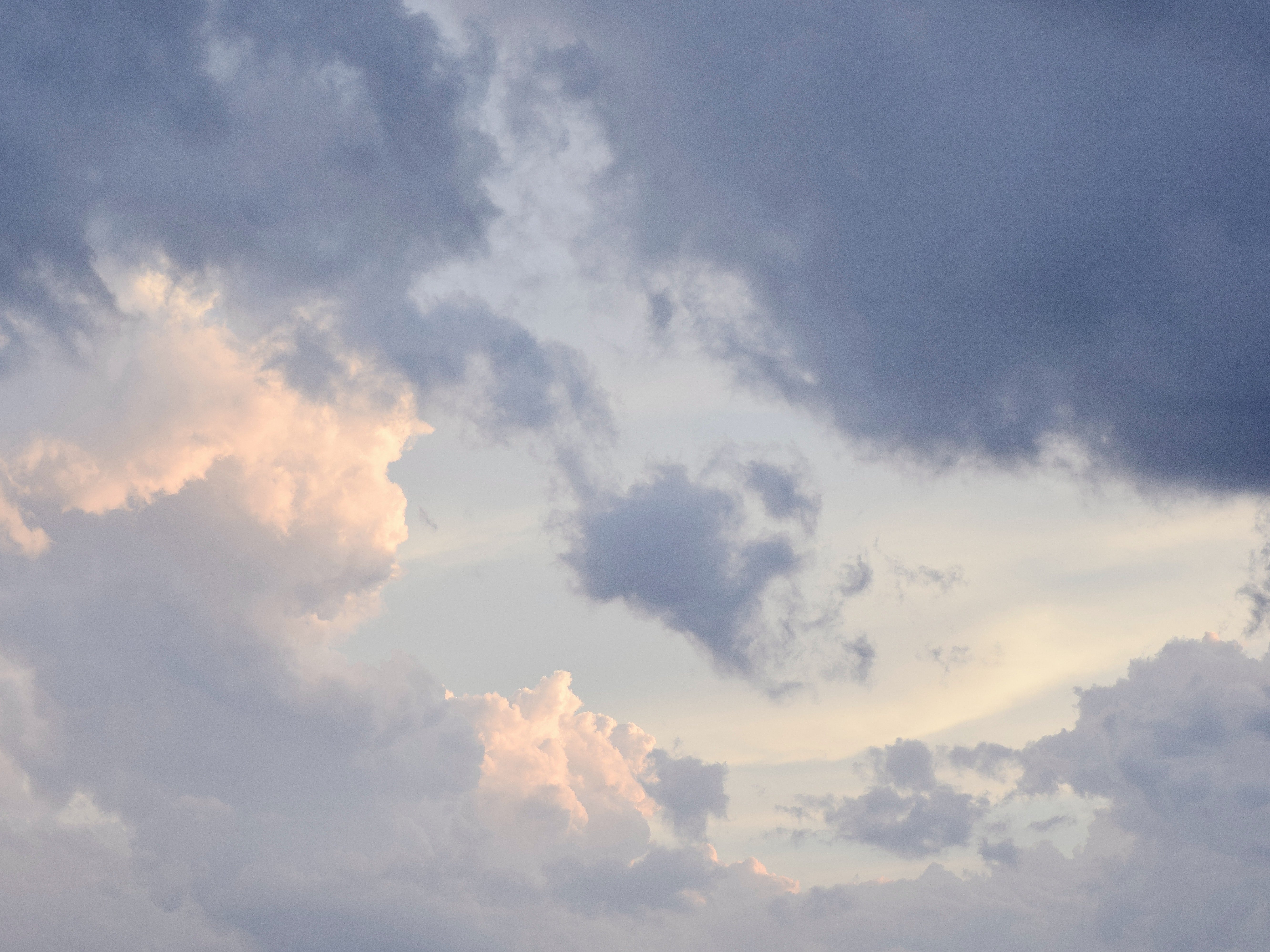
he greets the future w/ a lullaby that always asks why
& he’ll say he’s happy but
he ages faster
than an angel.
he says maybe
he’s near happy,
just seeks ten hugs
—twenty warm arms—
& a safety guarantee.
he’s burnt & shy & large,
but has a strangely small name,
the same weak knees,
& arms that hang empty,
barren.
we are all part hush & part frenzy,
all glee, but all regret.
he's a large rupture,
an un-lullaby.
he's pregnant
w/ war,
w/ an exhaust
that reeks
& rumbles.
he's pregnant
w/ blue sky
that grew up as
gray ash.
he's pregnant
w/ the past,
the future’s
teenage nephew.
a new un-lullaby:
“why name the future
when we saw
the past’s name
shatter & sputter,
seek better shelter?”
the war’s just unjust,
an anthem that wants
arms, but these burns
bury the yells
& when he says he’s happy,
he means he spells “help” h-a-p-p-y;
he means he’s less glee
& all regret;
he means he’s the lullaby &
the lullaby just left,
he means arms aren’t really safe—
the arms that warn war
raze the arms
that warm hugs.
he sees the past repeat &
he repeat-ruptures.
& when we bury
the angels,
he’ll nurse
the war.
Writer's Comments and Bio: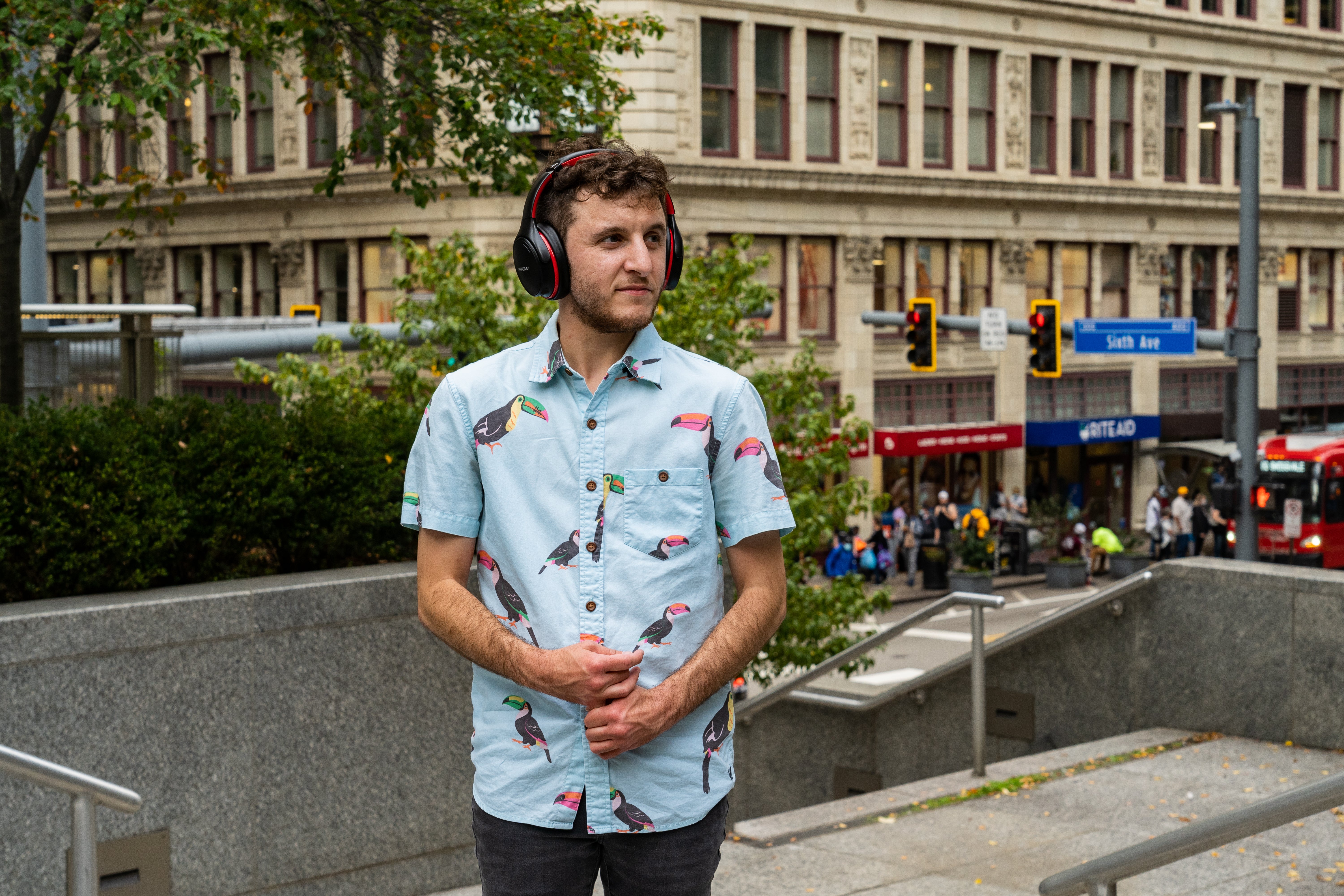
My poem “he greets the future w/ a lullaby that always asks why” is the brainchild of chaos and struggle. A wrestling of—and with—self. A wrestling of—and with—all that is outside of my control. This poem is about war—the kind the government recognizes and the kind no one else ever sees—and heartache and how to reckon with both of those as an empath. The constraints of this prompt felt much like the linguistic equivalent to social distancing, words found and kept in isolation from the letters in the COVID acronym. These words are taking extra precautions, knowing that the poet who birthed them for his first poem in months is at high-risk for feelings of shame and the desire to delete.
Eli Kurs-Lasky is a writer and emerging photographer who was born, raised, and continues to live in the City of Champions. Eli graduated in 2015 from the University of Pittsburgh, where he majored in English Writing (poetry) and Sociology. Since getting his undergraduate degree, Eli has broadened the scope of his writing practice to include personal essays, four of which have been published since 2019 by local publications PublicSource and Pittsburgh City Paper. The publication of “he greets the future w/ a lullaby that always asks why” will be the first time Eli’s poetry experiences the limelight and its long-awaited “15 minutes of fame.” Despite always having a soft spot for writing poetry, Eli has found his poetic voice much harder to access during the pandemic. “he greets the future w/ a lullaby that always asks why” is Eli’s first foray back into poetry in longer than he’d care to admit.
Judge's Comments:
I like these lines:
he’s burnt & shy & large,
but has a strangely small name,
the same weak knees,
& arms that hang empty,
and
we are all part hush & part frenzy
Our Judge was Senior Lecturer Jeff Oaks (who was featured in the Spring/Summer 2021 issue of T5F). Oaks has taught writing at Pitt for over 30 years; his journalling and other creative writing courses are much loved, and he frequently creates writing exercises requiring the omission of certain letters of the alphabet. Jeff Oaks' debut book of poetry, Little What, was published by Lily Poetry Review Books in September 2019. A second book, The Things, was published by the same press this spring. A recipient of three Pennsylvania Council of the Arts fellowships, Oaks has published poems in Best New Poets, Field, The Georgia Review, The Missouri Review, Superstition Review, and Tupelo Quarterly. His prose has appeared in At Length, Creative Nonfiction, Fourth Genre, Kenyon Review Online, and Water~Stone Review. Both his poems and prose have appeared in the anthologies Brief Encounters: A Collection of Contemporary Nonfiction (Norton, 2015) and My Diva: 65 Gay Men on the Women Who Inspire Them (U of Wisconsin Press, 2009).
Flower Photo: Photo by Dustin Humes on Unsplash
Sky Photo: Photo by Davies Designs Studio on Unsplash
Return to Newsletter Front Page
